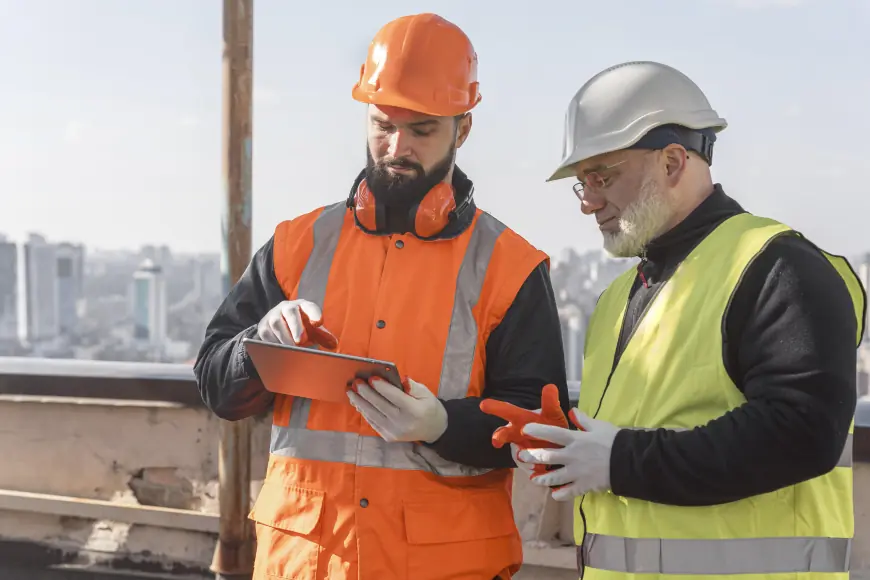From Planning to Finish: How Civil Construction Services and Construction Contractors Australia Manage Projects
Explore how civil construction services in Australia are planned and delivered. Learn how construction contractors in Australia manage infrastructure from start to finish.

In Australia, civil construction services play an important role in designing the physical structure of our cities and towns. From larger road work and bridges to water systems and public infrastructure, these projects are not only large in scale but also require detailed coordination and execution. The success of such development depends on expert building contractors in Australia who administer everything from early design stages to final distribution. Understanding how these projects are managed provides insight into professionalism, planning and teamwork that run the civilian building sector.
Understanding of civilian building services in Australian context
Civil Construction refers to the design, construction and maintenance of the environment created. This includes infrastructure such as highways, railway systems, dams, sewage lines and public parks. In Australia, both civilian construction services are government-funded and cover private sector projects, which have a strong focus on safety, stability and long-term value.
Certified civilian contractors are responsible for converting engineering schemes to structures from the real world. Their work begins well before they reach the first graver site and continues long after the final inspection. These civil engineering contractors follow strict national standards and work closely with stakeholders to ensure that each project meets its goals in terms of time, budget and quality.
Stages of a Civil Construction Project in Australia
The life cycle of a civilian construction project includes several major stages. Each step requires careful planning, coordination and expertise. All this begins with the planning phase, where feasibility studies and environmental assessments are done. Contractors quickly apply project management skills, as Team works with customers, architects and engineers to define the project goals, budget and deadline.
When the planning approval is safe, the design phase begins. This includes detailed images, traffic management strategies and resource allocation. Effective traffic flow control is especially important in urban development, where construction can interfere with everyday life. Construction cooperation at this time is necessary and ensures that all sides are in line before they break ground.
The construction phase includes real physical work. Reliable building contractors take responsibility for providing Australian content, managing trades and securing security on the site. This is the place where certified civilian entrepreneurs put their expertise to work, from the work of digging and foundation to the final landscape work. When building large infrastructure, civilian labour contractors often work in shifts to ensure things run around the clock.
Finally, when the project is completed, a series of inspections and tests are held to ensure that all regulatory requirements are kept. The document has been processed, and the project is handed over to the customer or society. At this stage, infrastructure construction contractors ensure that construction is not only structurally sound but also for long-term use.
The Role of Construction Contractors Australia
Building contractors are the backbone of Australian Civil Development. His role includes everything from budget and resource management to maintaining industries and ensuring compliance with Australian standards. They are often bridges between government officials, private customers and workers on site.
These contractors must have strong contractor project management skills to avoid many moving parts. They are responsible for hiring subcontinentals, ordering materials and maintaining the deadline. They also handle risks and adjust the problems with unexpected problems such as weather delays or supply chain.
In recent years, the industry has also used technology to improve efficiency. Many companies now use digital planning tools and website management software to streamline procedures. This helps in real-time communication between teams and allows quick decisions in critical stages.
Traffic Control and Security Aids
An important aspect of civilian construction services is security and traffic management. With several projects in busy public areas, the traffic control of the construction site becomes necessary. Proper traffic control protects workers, pedestrians and motorists. It also ensures that construction activities do not create chaos or danger in the surrounding area.
Australian civil engineering contractor uses a strategy for traffic flow management to maintain orders. This practice is closely regulated and must follow local advice and state guidelines. By effectively handling traffic, not only does it reduce contractors of accidents, but it also maintains public trust in their work.
Challenges in the Civil Construction Industry
Despite its strength, the civilian construction industry in Australia faces many challenges. Labour shortages, increasing material costs and environmental rules can delay projects or influence the budget. Building contractors should adapt to Australia, especially in the indeterminate economic period. Climate change has also introduced new ideas, such as flood-flexible infrastructure creation or the need to reduce emissions during construction.
Collaboration is important to overcome these challenges. Projects that include clear communication, shared responsibility and respect between contractors, customers and officials are more likely to succeed. The best civilian labour contractors believe that all those involved in strong participation can have better results.
Looking forward: The future of civilian construction in Australia
Australia's civilian construction landscape develops with new techniques and high stability standards. From smart road systems to green infrastructure, civilian construction services adapt to meet modern needs. Infrastructure-building contractors are now expected to think beyond basic efficiency. Projects are designed to support future population growth, environmental protection and better urban life.
The growing role of automation, data analysis and digital modelling helps to produce contractors to distribute projects more efficiently in Australia. These units support better decision-making, cost control and resource management. In the meantime, pushing for more inclusive recruitment practices is to encourage diversity and innovation in building teams.
Conclusion
A civilian construction project is a complex but rewarding process until the management plan is completed. In Australia, this work is run by talented building contractors who combine practical experience with advanced planning methods. Civilian building services are necessary for the development of the country, ranging from coordinating the on-site traffic flows to the administration of contractors and distributing the infrastructure that supports the entire community.
By understanding the entire project's life cycle and recognising the importance of collaboration and safety, certified civilian entrepreneurs continue to distribute roads, bridges and public places that improve the lives of Australians. Whether it is a small suburban upgrade or a large-scale transport corridor, each project reflects the hard work and competence of the civil engineering contractors that shape the future of our cities and cities.
What's Your Reaction?
 Like
0
Like
0
 Dislike
0
Dislike
0
 Love
0
Love
0
 Funny
0
Funny
0
 Angry
0
Angry
0
 Sad
0
Sad
0
 Wow
0
Wow
0





















































